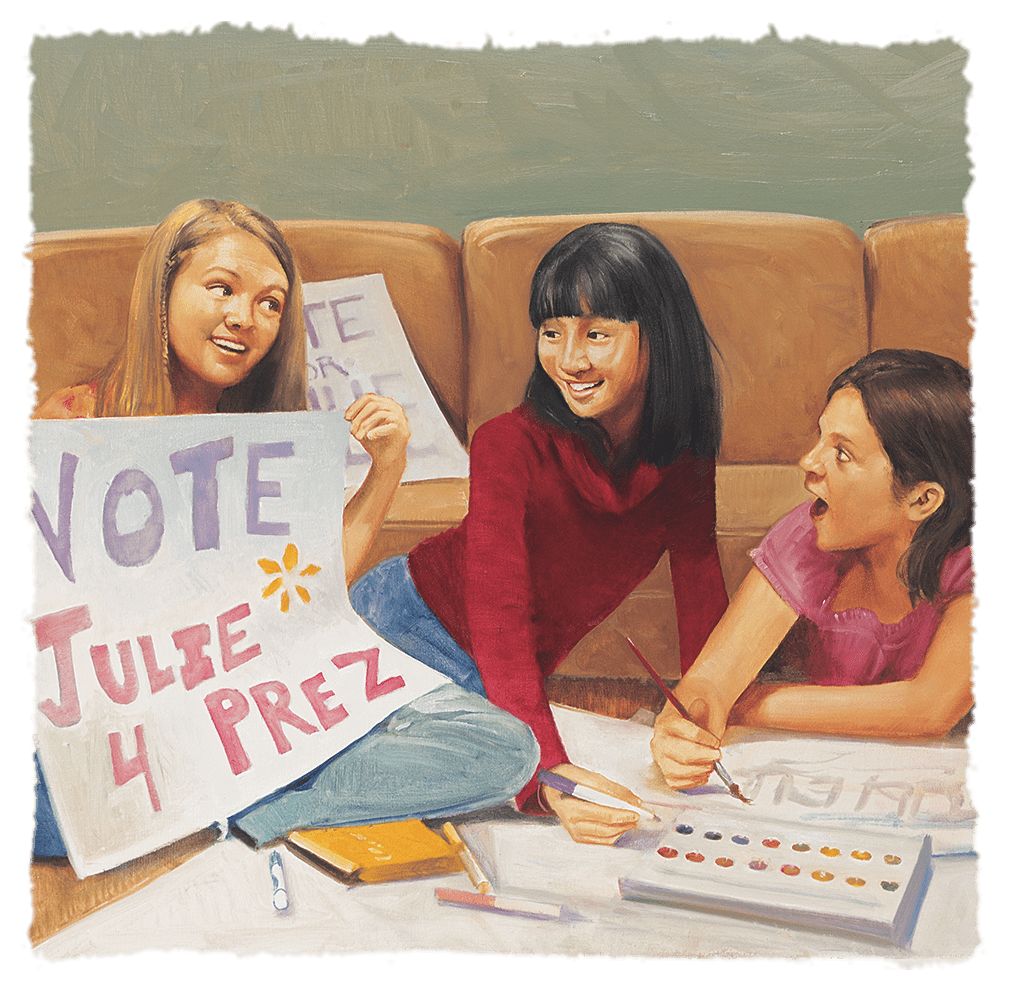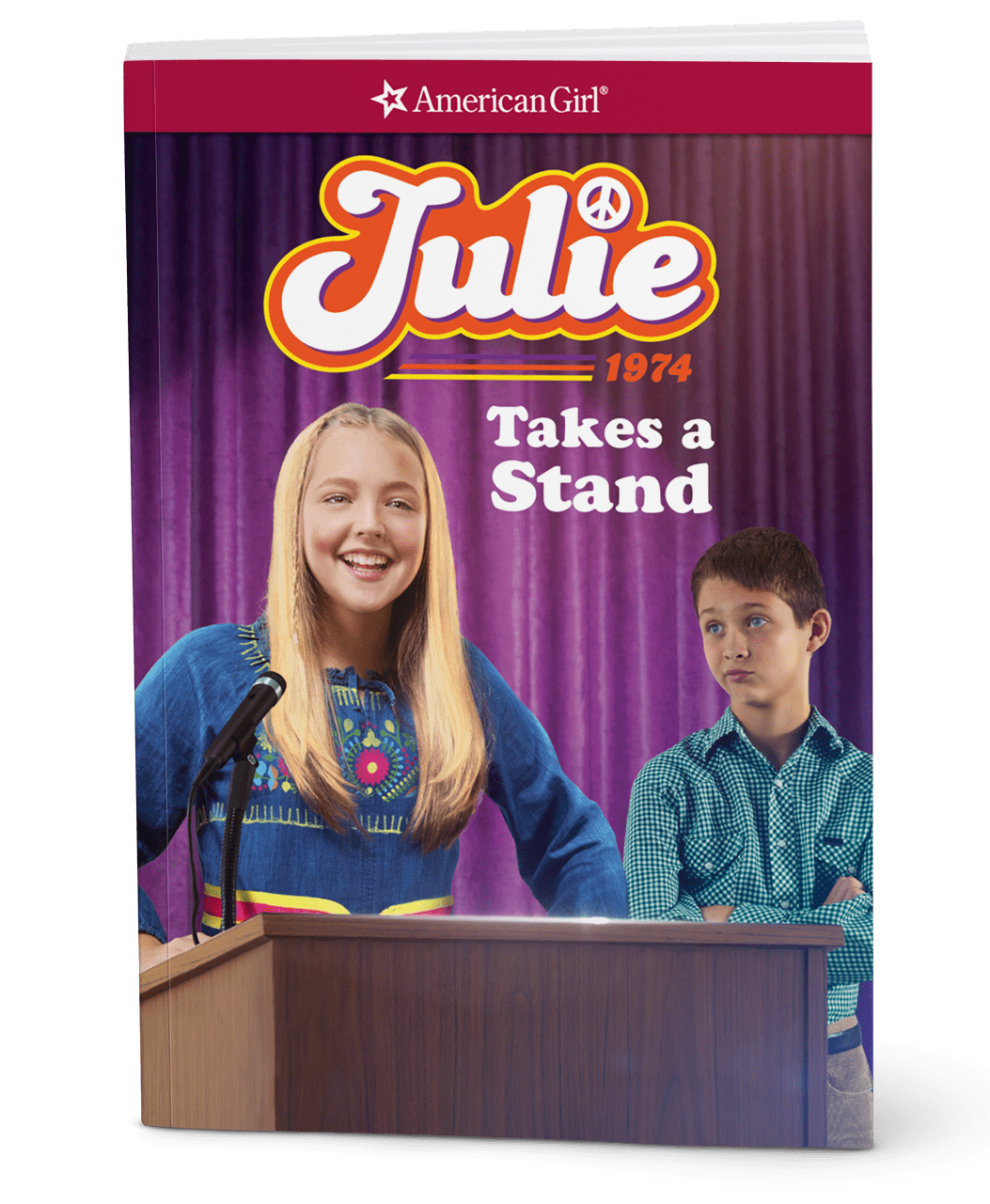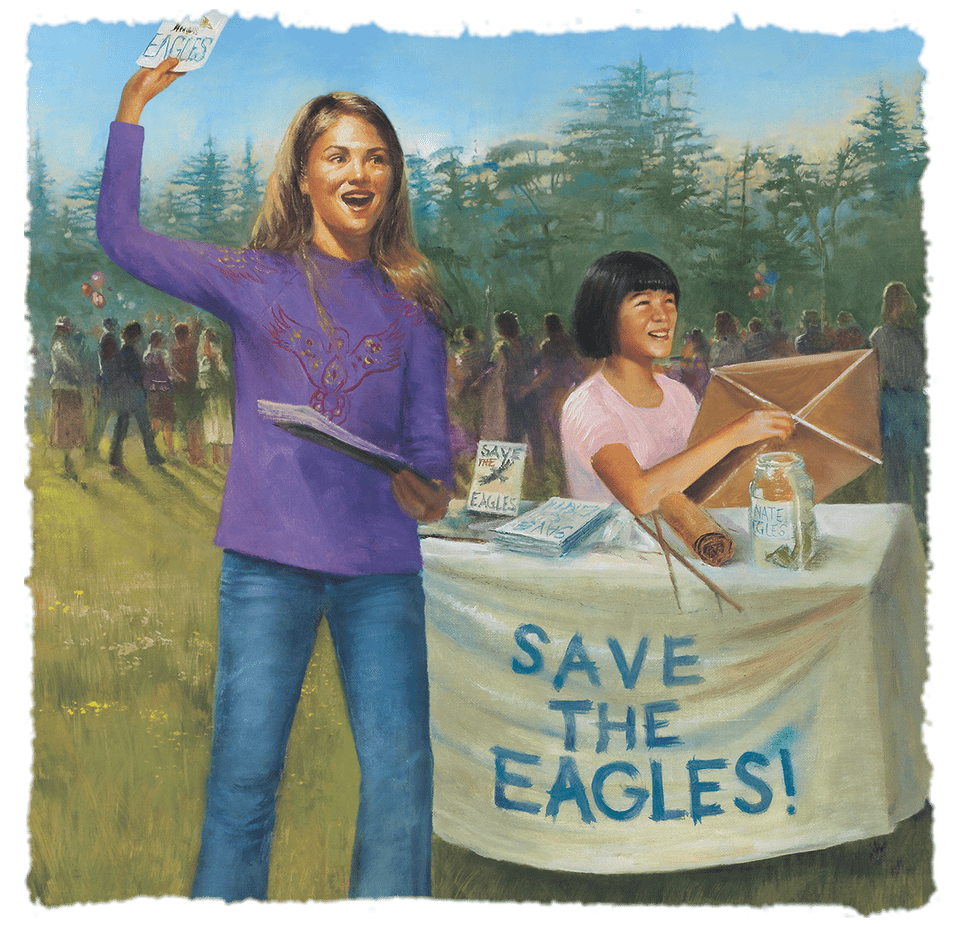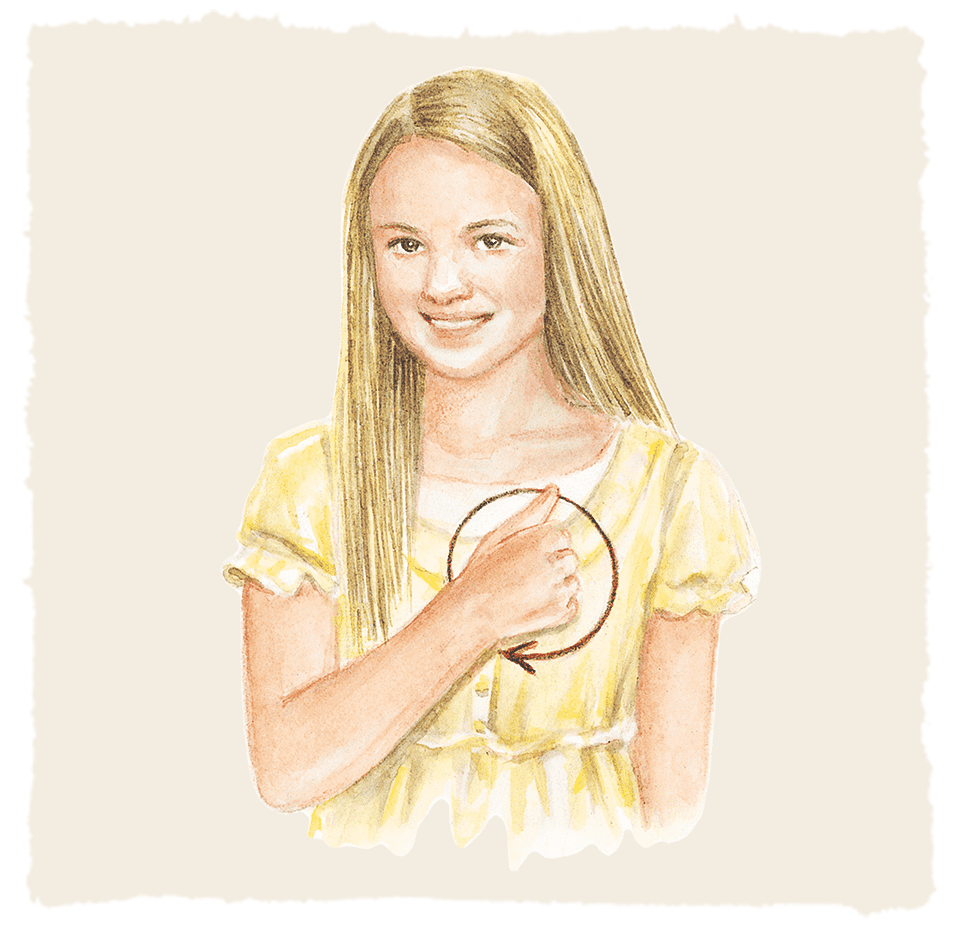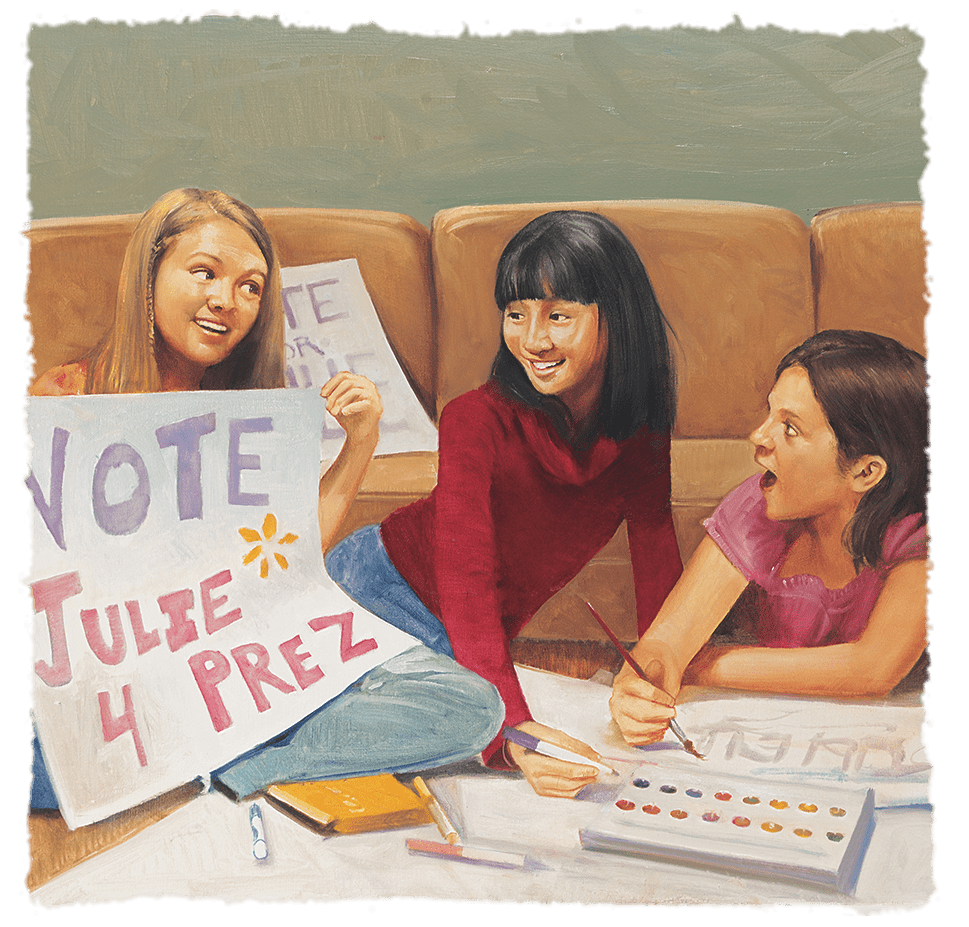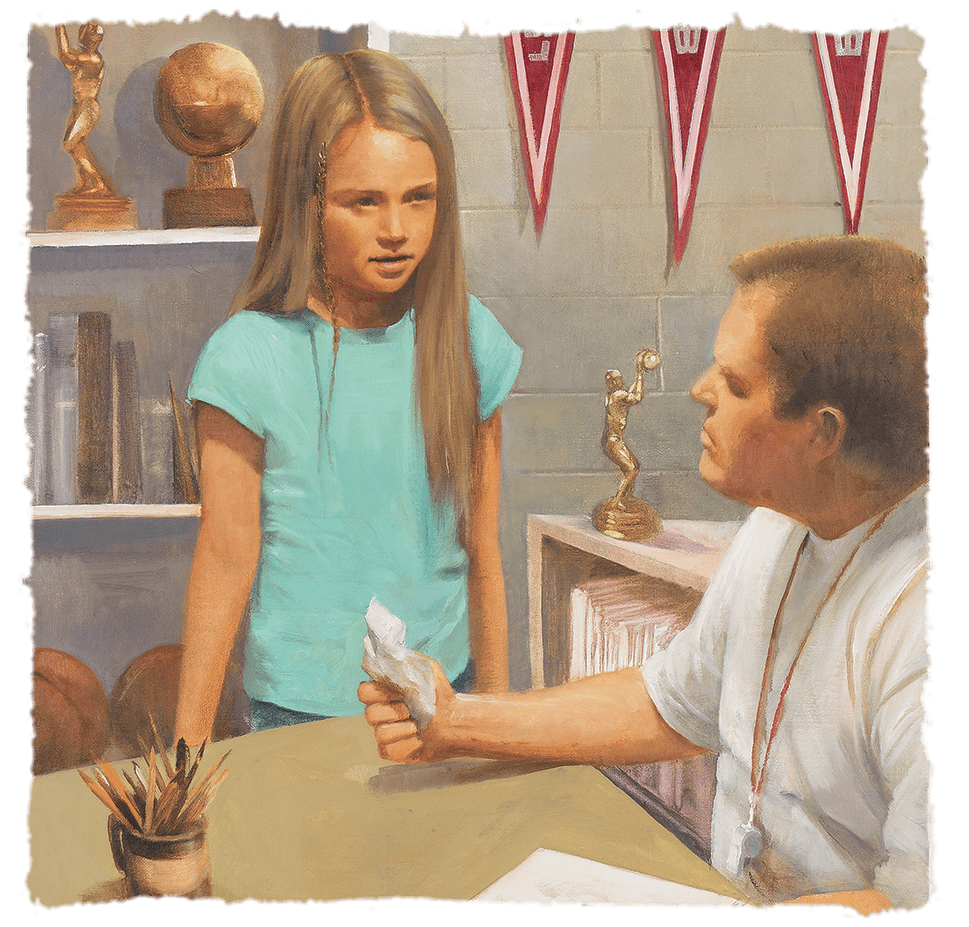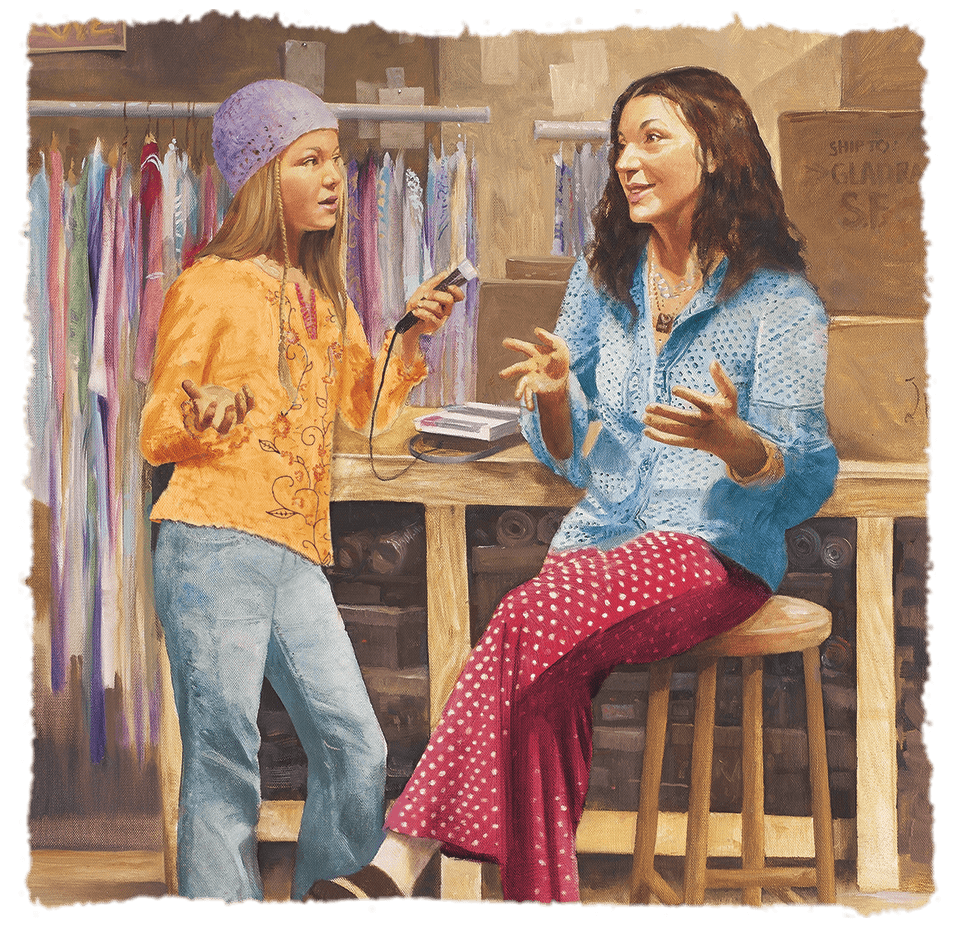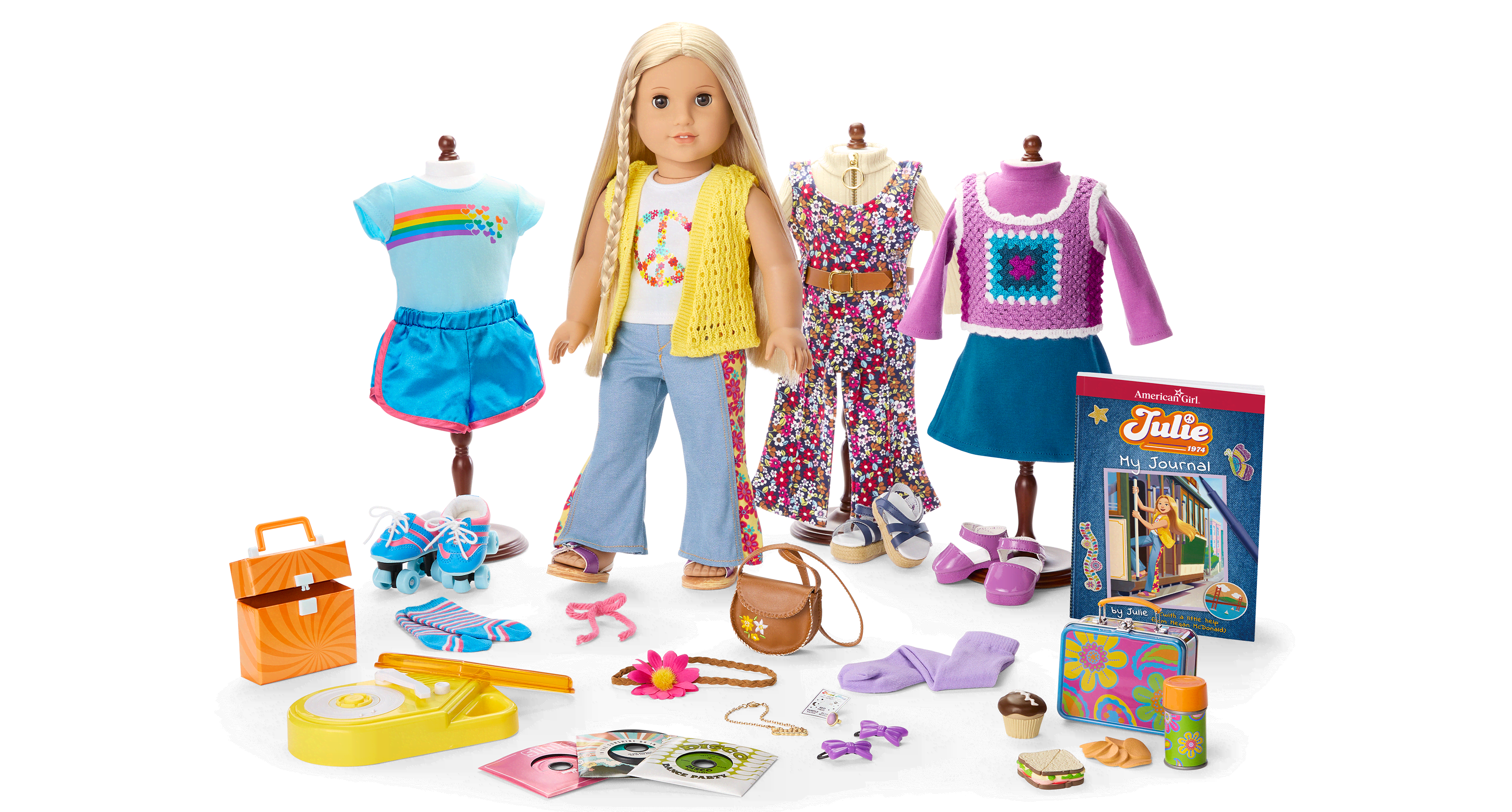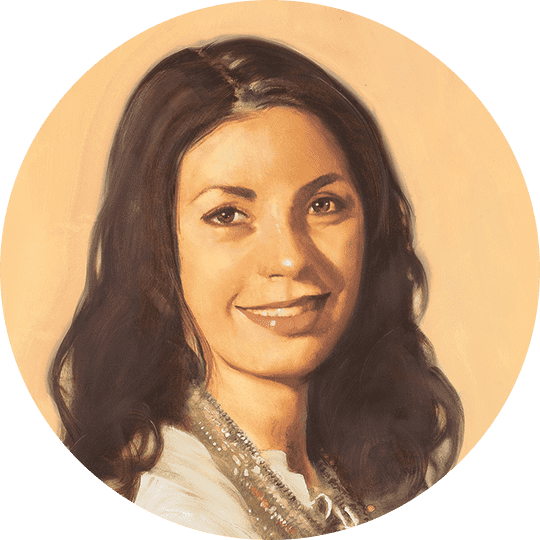
Joyce Albright
Julie’s mom owns a small shop called Gladrags that carries handmade décor and clothing. She supports Julie’s ambition and independence, and she expects Julie and her sister to be responsible and help out while she’s at work in the shop.
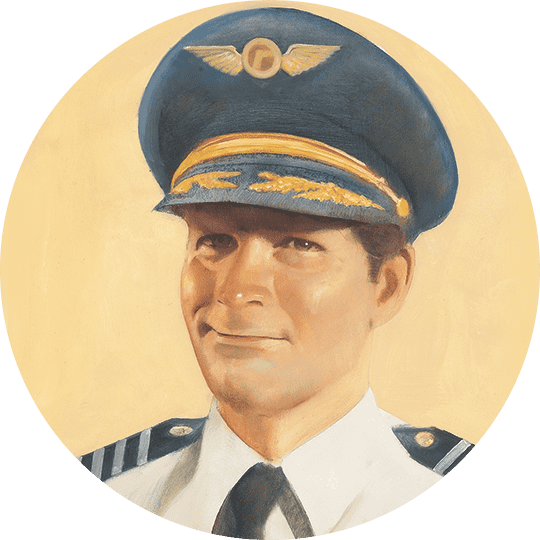
Daniel Albright
A commercial airline pilot, Julie’s dad is easygoing and loves to joke and tease. He taught Julie to play basketball. He worries that playing on the boys’ basketball team might be risky, but he always listens to Julie and supports her.
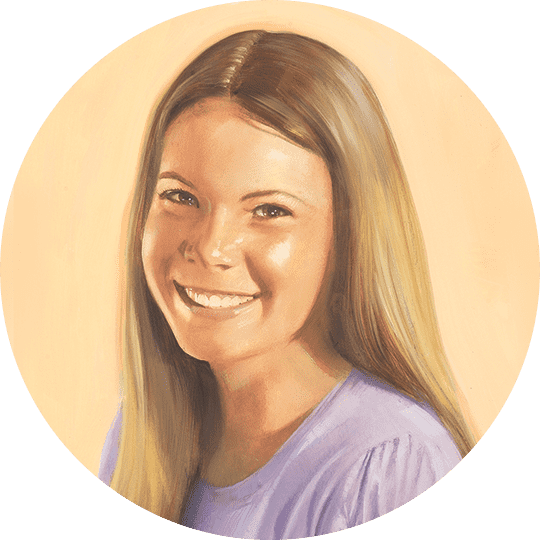
Tracy Albright
Julie’s moody sister is 15. She and Julie sometimes squabble, but Tracy has Julie’s back. She encourages Julie’s basketball ambitions, and whenever Julie’s feeling down, Tracy usually finds a way to cheer her sister up.
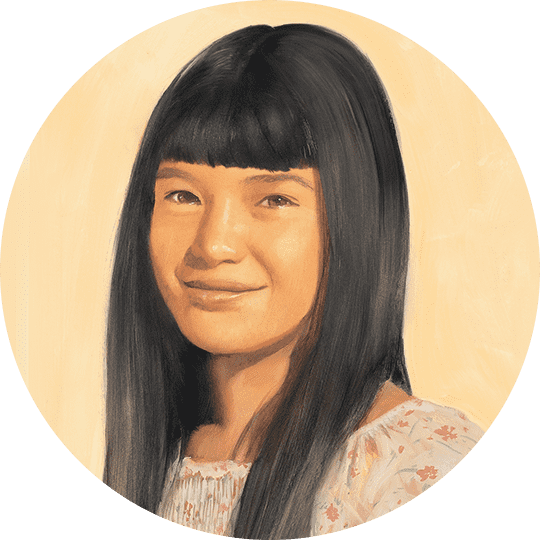
Ivy Ling
Julie’s best friend since kindergarten, Ivy lives across the street from Julie’s dad. She and Julie have a secret code. Ivy takes care of Julie’s bunny when Julie’s dad travels and sticks up for Julie when others doubt her.
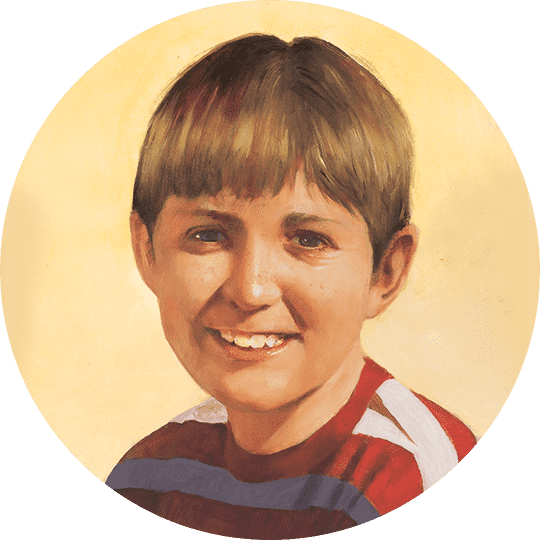
T.J.
Julie’s first friend at her new school. They bond over basketball, and T.J. helps Julie get on the team. When Julie runs for student body president, T.J. runs her campaign. There’s no romance between them—just an easy friendship.

Coach Manley
The gym teacher at Julie’s elementary school. While it takes a mandate from the principle for him to let Julie join the basketball team, once she’s on the team Coach Manley treats her like the other players and expects the best from her.
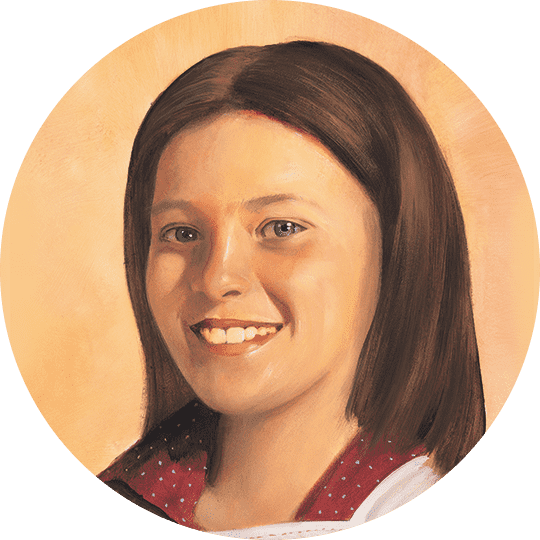
Joy
A classmate who campaigns with Julie in the school election. Joy is deaf—but not blind to the fact that some kids make fun of her. When Julie finds a way to enlighten Joy’s tormentors, Joy gains confidence and accepts Julie’s help with grace.

April
Julie’s cousin is 13. Julie joins April’s family on the Bicentennial wagon train. She helps Julie overcome her fear of riding horses, and together April and Julie help save an important piece of American history.
Amanda, Alison, and Angela
AKA The Water Fountain Girls, Julie’s nickname for them, because they hang around the water fountain, whispering and gossiping. They admire Julie’s mom but are unkind to Joy—until Julie changes their attitude.
Hank
A veteran who lives nearby and welcomes Julie, Tracy, and Mom to the neighborhood with homemade zucchini bread. He gives Julie advice on how to start a petition—and keep at it when getting 150 signatures seems impossible.
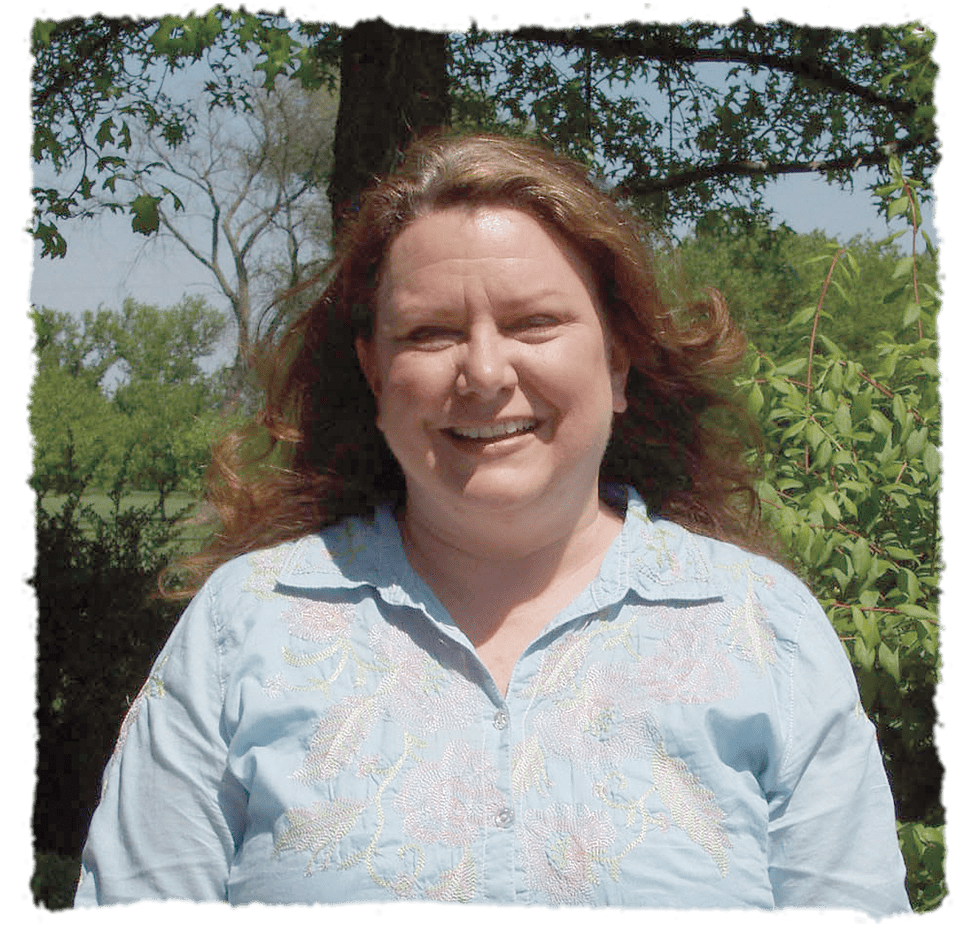
Author Megan McDonald
Megan McDonald has loved to write since she was ten, when she got her first story published in her school newspaper. Megan vividly remembers growing up in the 1970s and doing many of the things Julie does, like learning the metric system. Megan lives with her husband in Sebastopol, California, an hour north of San Francisco, where she writes the Judy Moody series and other books for children.
Illustrator Robert Hunt
Robert Hunt has won many national awards for illustration, and his artwork has appeared on many book covers, advertisements, and even in movies—he painted the Dreamworks film studio logo of the boy fishing from the crescent moon. Robert also illustrated the books about American Girl’s historical character Rebecca Rubin. Robert lives and works in Marin County, near San Francisco.

When Julie launched in 2007, many AG customers said the ‘70s didn’t seem like history—because they had grown up during those years, just like Julie!”

Julie is American Girl’s first character set on the West Coast.

Julie’s best friend, Ivy Ling, is American Girl’s first Chinese American character. Both Julie and Ivy dolls launched with books in the summer of 2007.

Ivy’s book, Good Luck, Ivy, was written by author Lisa Yee. Lisa later wrote the books for the Girl of the Year 2015, Lea.

When Julie runs for student body president with her friend Joy, who is deaf, she decides to learn sign language. Julie and Joy win over the other students by teaching them some sign language, too.

When Julie’s dad must miss Career Day at school, her mom shows up instead. At first Julie is mortified, but her classmates are impressed, and Julie starts to see her mom in a new light.

Julie’s stories begin in fall 1975. They end in fall 1976, during the presidential race between Gerald Ford and Jimmy Carter.

Upcycling and thrift-shopping were extremely popular in the 1970s—just as they are today.

Julie learns about Title IX, the federal law mandating gender equity in education. Before that, women were not admitted to most law, medical, or business schools.

In the ‘70s, most schools didn’t have computers or photocopiers. These machines had been invented and were used by businesses and government but were too expensive for schools.

One of the first-ever rock-concert fundraisers was held in San Francisco for the public schools, which had canceled sports and arts programs due to lack of money.

For the Bicentennial in 1976, there really was a wagon train like the one Julie rides in, to honor the cross-country journeys of American pioneers.




